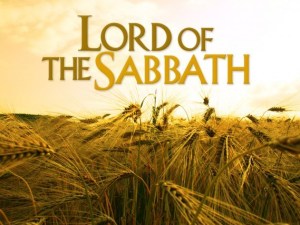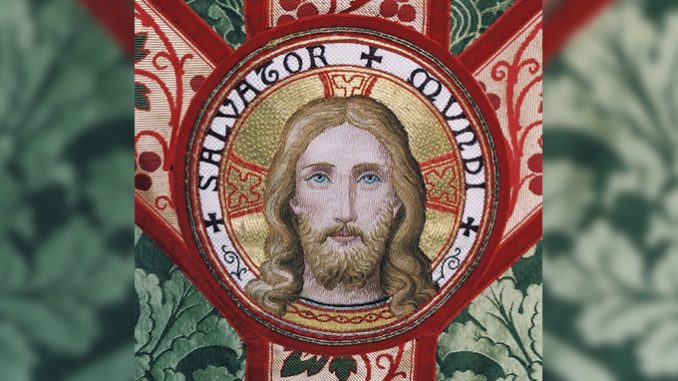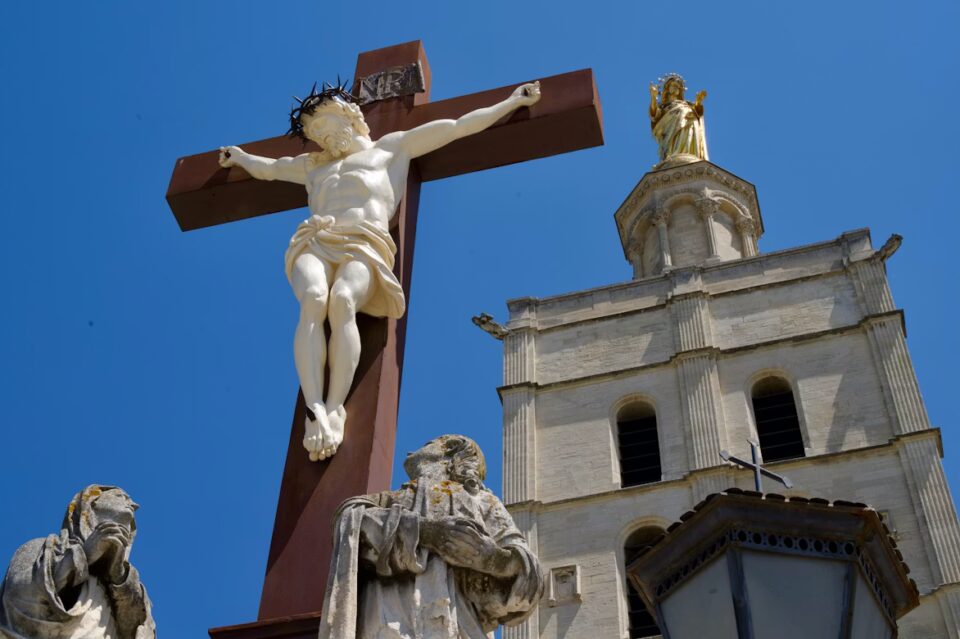GOSPEL READING: Mark 2:23-28
23 One Sabbath he was going through the grain fields; and as they made their way his disciples began to pluck heads of grain. 24 And the Pharisees said to him, “Look, why are they doing what is not lawful on the Sabbath?” 25 And he said to them, “Have you never read what David did, when he was in need and was hungry, he and those who were with him: 26 how he entered the house of God, when Abiathar was high priest, and ate the bread of the Presence, which it is not lawful for any but the priests to eat, and also gave it to those who were with him?” 27 And he said to them, “The Sabbath was made for man, not man for the Sabbath; 28 so the Son of man is lord even of the Sabbath.”
Meditation: What does the commandment “keep holy the Sabbath” require of us? Or better yet, what is the primary intention behind this command? The religious leaders confronted Jesus on this issue. The “Sabbath rest” was meant to be a time to remember and celebrate God’s goodness and the goodness of his work, both in creation and redemption. It was a day set apart for the praise of God, his work of creation, and his saving actions on our behalf. It was intended to bring everyday work to a halt and to provide needed rest and refreshment.
The Lord of the Sabbath feeds and nourishes us
Jesus’ disciples are scolded by the scribes and Pharisees, not for plucking and eating corn from the fields, but for doing so on the Sabbath. In defending his disciples, Jesus argues from the scriptures that human need has precedence over ritual custom.
When David and his men were fleeing for their lives, they sought food from Ahimelech the priest (1 Samuel 21:1-6). The only bread he had was the holy bread offered in the Temple. None but the priests were allowed to eat it. In their hunger, David and his men ate of this bread. Jesus reminds the Pharisees that the Sabbath was given for our benefit, to refresh and renew us in living for God. It was intended for good and not for evil. Withholding mercy and kindness in response to human need was not part of God’s intention that we rest from unnecessary labor. Do you honor the Lord in the way you treat your neighbor and celebrate the Lord’s Day?
Seek the Lord’s rest and refreshment
Why didn’t the Pharisees recognize the claims of mercy over rules and regulations? Their zeal for ritual observance blinded them from the demands of charity. Jesus reminds the Pharisees that the Sabbath was given for our benefit, to refresh and renew us in living for God. It was intended for good and not for evil. Withholding mercy and kindness in response to human need was not part of God’s intention that we rest from unnecessary labor.
Jesus’ reference to the bread of the Presence (Mark 2:24) alludes to the true bread from heaven which he offers to all who believe in him. Jesus, the Son of David, and the Son of Man, a title for the Messiah, declares that he is “Lord of the Sabbath.” Jesus healed on the Sabbath and he showed mercy to those in need. All who are burdened and weary can find true rest and refreshment in him. Do you honor the Lord in the way you treat your neighbor and celebrate the Lord’s Day?
Lord Jesus, may I give you fitting honor in the way I live my life and in the way I treat my neighbor. May I honor the Lord’s Day as a day holy to you. And may I always treat others with the same mercy and kindness which you have shown to me. Free me from a critical and intolerant spirit that I may always seek the good of my neighbor.
Psalm 111:1-2,5-6,9-10c
1 Praise the LORD. I will give thanks to the LORD with my whole heart, in the company of the upright, in the congregation.
2 Great are the works of the LORD, studied by all who have pleasure in them.
5 He provides food for those who fear him; he is ever mindful of his covenant.
6 He has shown his people the power of his works, in giving them the heritage of the nations.
9 He sent redemption to his people; he has commanded his covenant for ever. Holy and awesome is his name!
10 His praise endures for ever!
Daily Quote from the Early Church Fathers: The Lord of the Sabbath, by John Chrysostom, 547-407 A.D.
“Doubtless he speaks of himself when he mentions the ‘Lord of the sabbath’ (Mark 2:28, Matthew 12:8, Luke 6:5). Mark relates a complementary saying about our common human nature, that “the sabbath was made for humans, not humans for the sabbath” (Mark 2:27). Why then should someone who gathered sticks on the sabbath be censured? The law that was established earlier could not be scorned without jeopardizing the law to be given later.
“The sabbath did confer many benefits, great blessings in the earlier dispensation. It made people more gentle toward those close to them. It guided them toward being more sympathetic. It located them temporally within God’s creation and providence, as Ezekiel knew (Ezekiel 20:19-20). The sabbath trained Israel by degrees to abstain from evil and disposed them to listen to the things of the Spirit.
“They would have stretched the law out of shape if, when he was giving the law of the sabbath, Jesus had said, ‘You can work on the sabbath, but just do good works, do nothing evil.’ This would have brought out the worst in them. So he restrained them from doing any works at all on the sabbath. And even this stricter prohibition did not keep them in line. But he himself, in the very act of giving the law of the sabbath, gave them a veiled sign of things to come. For by saying, ‘You must do no work, except what shall be done for your life’ (Exodus 12:16), he indicated that the intent of the law was to have them refrain from evil works only, not all works. Even in the temple, much went on during the sabbath, and with great diligence and double toil. Thus even by this very shadowy saying Jesus was secretly opening the truth to them. Did Christ then attempt to repeal a law so beneficial as the sabbath law? Far from it. Rather, he greatly magnified the sabbath. For with Christ came the time for everyone to be trained by a higher requirement.”(excerpt from THE GOSPEL OF MATTHEW, HOMILY 39.3)
Meditations may be freely reprinted for non-commercial use – please cite: copyright © 2025 Servants of the Word, source: dailyscripture.net, author Don Schwager.
Scripture quotations from Common Bible: Revised Standard Version of the Bible, copyright 1973, and Ignatius Edition of the Revised Standard Version of the Bible, copyright 2006, by the Division of Christian Education of the National Council of the Churches of Christ in the United States of America. Used by permission. All rights reserved. Citation references for quotes from the writings of the early church fathers can be found here.
The Daily Scripture Readings and Meditations is in need of on-going development to expand resources and to reach people around the world. If you would like to contribute, you can make an online donation.







